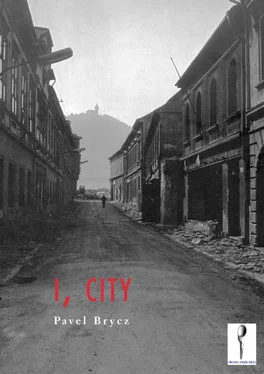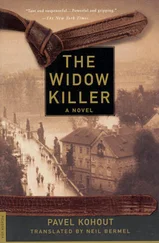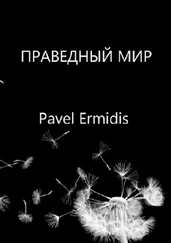Pavel Brycz - I, City
Здесь есть возможность читать онлайн «Pavel Brycz - I, City» весь текст электронной книги совершенно бесплатно (целиком полную версию без сокращений). В некоторых случаях можно слушать аудио, скачать через торрент в формате fb2 и присутствует краткое содержание. Год выпуска: 2006, Издательство: Twisted Spoon Press, Жанр: Современная проза, на английском языке. Описание произведения, (предисловие) а так же отзывы посетителей доступны на портале библиотеки ЛибКат.
- Название:I, City
- Автор:
- Издательство:Twisted Spoon Press
- Жанр:
- Год:2006
- ISBN:нет данных
- Рейтинг книги:5 / 5. Голосов: 1
-
Избранное:Добавить в избранное
- Отзывы:
-
Ваша оценка:
- 100
- 1
- 2
- 3
- 4
- 5
I, City: краткое содержание, описание и аннотация
Предлагаем к чтению аннотацию, описание, краткое содержание или предисловие (зависит от того, что написал сам автор книги «I, City»). Если вы не нашли необходимую информацию о книге — напишите в комментариях, мы постараемся отыскать её.
Dubliners
I, City
I, City — читать онлайн бесплатно полную книгу (весь текст) целиком
Ниже представлен текст книги, разбитый по страницам. Система сохранения места последней прочитанной страницы, позволяет с удобством читать онлайн бесплатно книгу «I, City», без необходимости каждый раз заново искать на чём Вы остановились. Поставьте закладку, и сможете в любой момент перейти на страницу, на которой закончили чтение.
Интервал:
Закладка:
“Come on,” Tony said. The fish-tank ceremony had ended. The smoke from the chimney made the planet with its gray and heavy clouds run from the west to the east.
“Yes, dear,” she agreed. She saw that he wanted to tell her something. Now, she said to herself, wet to the bone and happy, now, and lifted her face to him so that he could see she was waiting, that she could, and only for him, finally say it.
Tony drew a breath and everything he had committed himself to could have been said in that moment. If for a second time his father hadn’t weighed in. Now no longer as Majer, but as another substance.
Soot fell from the chimney of the crematorium onto the girl’s face. As if a Madame De Pompadour’s beauty spot, the soot became enthroned on her cheek.
All of a sudden, Tony couldn’t take his eyes off it. He took such a long look he forgot how to talk.
He forgot to say he loved her, that he had been afraid to marry her and to have a child with her, but that now he wasn’t afraid anymore, that he wanted it, that here and now he wants it, and that if she agrees, he would go with her to her parents and ask them for her hand and then they would go to city hall, and to the church; they would go there, straight from this sad place, and they would say yes twice.
He didn’t say that. He only bowed to Eva’s cheek and blew away the soot.
They have never spoken of it since.
This is the way a cemetery sometimes buries love.
And not only the love of the dead, but also that of the living.
AN APPEARANCE, TAME
Every time the Berolina Circus came to visit me and pitched its brightly colored tent full of tiny light bulbs perching along its ridges like swallows on a wire, the Stankov family found themselves in an argument. The argument was always about who would go to the evening show with the children, Robert, Kryštof, and Daniel from around the block. Who would take these three rascals ages six, seven and nine, to the Park at the End of the Line, to the rounded ground under the big-top.
Who would buy them cotton candy, pistachio ice cream, taffy and those fake noses on elastic strings. Who would slap them when they spat at the tigers. (Actually, the adults don’t know this, but the children always spit at the tamer, cowardly hiding behind his tigers!)
Who would explain to them there’s no need to be scared and cry when the clowns kick themselves in the butt, that it’s all actually one big joke. And then when they’d break up in laughter, who could bear it? Well, tell me, who?
Mrs. Stankovová resolutely declares:
“Father.”
So Mr. Stankov knows that today it’s his turn to go.
No arguments apply when it comes to the circus. A circus isn’t a social function, where a woman could put on a chic dress and show herself in a loggia box. The circus is an obnoxious tumult shot through with coarse humor: clowns spit at faces, the magicians from the sideshow force you to participate, though you don’t want to, the horses swirl dust, you feel sorry for the poodles, the spangles somehow aren’t glamorous enough for the eyes of a lady. And yet Mrs. Stankovová might take her sons to see figure skating, where the sequins don’t bother her. It’s actually a beautiful dance on ice. But are her boys and Daniel, an orphan from the neighborhood who lives with his grandmother, interested in such dances? They’re still too young to appreciate the grace of the girls, and if they see men dancing on ice, they don’t mince their words.
They say: “A man should play hockey! These guys are queers!” “Oh, well,” sighs Mr. Stankov, who puts on his sports jacket and whistles for the boys.
They go to the circus.
At the circus, the boys behave as they should: they laugh their heads off, they spit at the tigers (shh, as we know now, at the tamer) , they put away six sticks of cotton candy, six cones of ice cream and six pieces of chewing gum, swallowed.
The Berolina bandmaster gives an Eb. After the tigers comes something unique. The ringmaster himself introduces the new act:
“And now, ladies and gentlemen, a world-famous artist from Bulgaria! Nina Dimitrova and her polar bears.
“A polar bear is an animal that is impossible to tame. As of this moment her wards are still feral, as they were in the Arctic wilderness. These bears have already killed three tamers. But when she enters their cage, they’ll do what she wills.
“How will she manage that, you ask? I don’t know. It’s her secret. It’s her. Nina Dimitrova!”
And in come five white polar bears with the fiery Nina Dimitrova: her mighty breasts are laced up in an elaborate corset, her leather pants are tight-fitting, in her hand she holds a whip and above her forehead with its flashing tiara waves thick black hair that reaches down to the middle of her back.
“Dad, Dad, look,” Robert and Kryštof scream.
“Mr. Stankov,” gasps Daniel.
And the boys and the man then observe how the white beasts grow tender and scurry around Nina Dimitrova, letting themselves be spun around cumbersomely in some kind of high-stepping folk dance, then become a horse for her, next a sofa and a hairdresser’s dryer for her hair. For that, Nina Dimitrova combs her hair up into a bun and shoves it all into the maw of a bear breathing hot. And then she pulls her hair out and the bear seems afraid even to dribble. Her hairdo has not been devalued in the least; it’s still the snazziest to be found on our planet. Nina Dimitrova, the most beautiful woman in the world.
Applause. Bravo! Bravo, Nina Dimitrova!
As Nina Dimitrova disappears after her bears, the boys get an idea.
“Dad,” Robert asks, “what about us going to ask her how she gets all those untamed bears to obey her?”
“What? Well, okay. Go.” Their father approves a bit absent-mindedly. Robert, Kryštof and Daniel sneak behind the scenes, and Kryštof meditates:
“I think Dad’s interested too. Imagine if we knew what this woman knows. Then everyone would obey us.”
And like the three Magi who, caps in hand, go caroling, Robert, Kryštof, and Daniel approach Nina Dimitrova and chirp: “Madam, please, we…”
“O God!” screams the world-famous artist from Bulgaria, threatening them with her polar-bear whip. “Get those damned brats out of here!”
“Surely it was a mistake,” Mr. Stankov comforts his sons and Daniel from the neighborhood. They sit in the arena like whipped curs. “You must’ve gotten confused,” he says, “she spoke Bulgarian and you misunderstood. Wait, I’ll go see her myself.”
“Dad, you know Bulgarian?” asks Robert.
“Sure,” he answers.
“Your dad’s great,” thinks Daniel, “he knows everything in the world.”
After an hour of waiting, Robert, Kryštof, and Daniel went to find him. The show had ended a long time ago and they wanted to go home.
“Go on, boys,” their father called out at them. He was engaged in convivial talk with Nina Dimitrova, “tell Mom, that… that… that I’ll come right away.”
“Your dad knows Bulgarian very well,” observed Daniel, when he was parting from both junior Stankovs.
“Well, of course he does,” Kryštof agreed. “I only hope that he’ll get out of that woman the secret of how she does all that stuff with the bears.”
The boys argued for a long time before falling asleep over what kind of a trick it could be, but because they didn’t come up with anything, they fell asleep and had dreams in which it all came to them easily.
They hadn’t a clue as to when their father returned home from the circus.
“She didn’t give it away,” Father whispered to the boys in the morning.
“That sucks,” the boys thought.
And neither did they notice that for the next two weeks their father was washing the dishes, dusting the whole house, shining the silver and taking out the trash.
Читать дальшеИнтервал:
Закладка:
Похожие книги на «I, City»
Представляем Вашему вниманию похожие книги на «I, City» списком для выбора. Мы отобрали схожую по названию и смыслу литературу в надежде предоставить читателям больше вариантов отыскать новые, интересные, ещё непрочитанные произведения.
Обсуждение, отзывы о книге «I, City» и просто собственные мнения читателей. Оставьте ваши комментарии, напишите, что Вы думаете о произведении, его смысле или главных героях. Укажите что конкретно понравилось, а что нет, и почему Вы так считаете.












